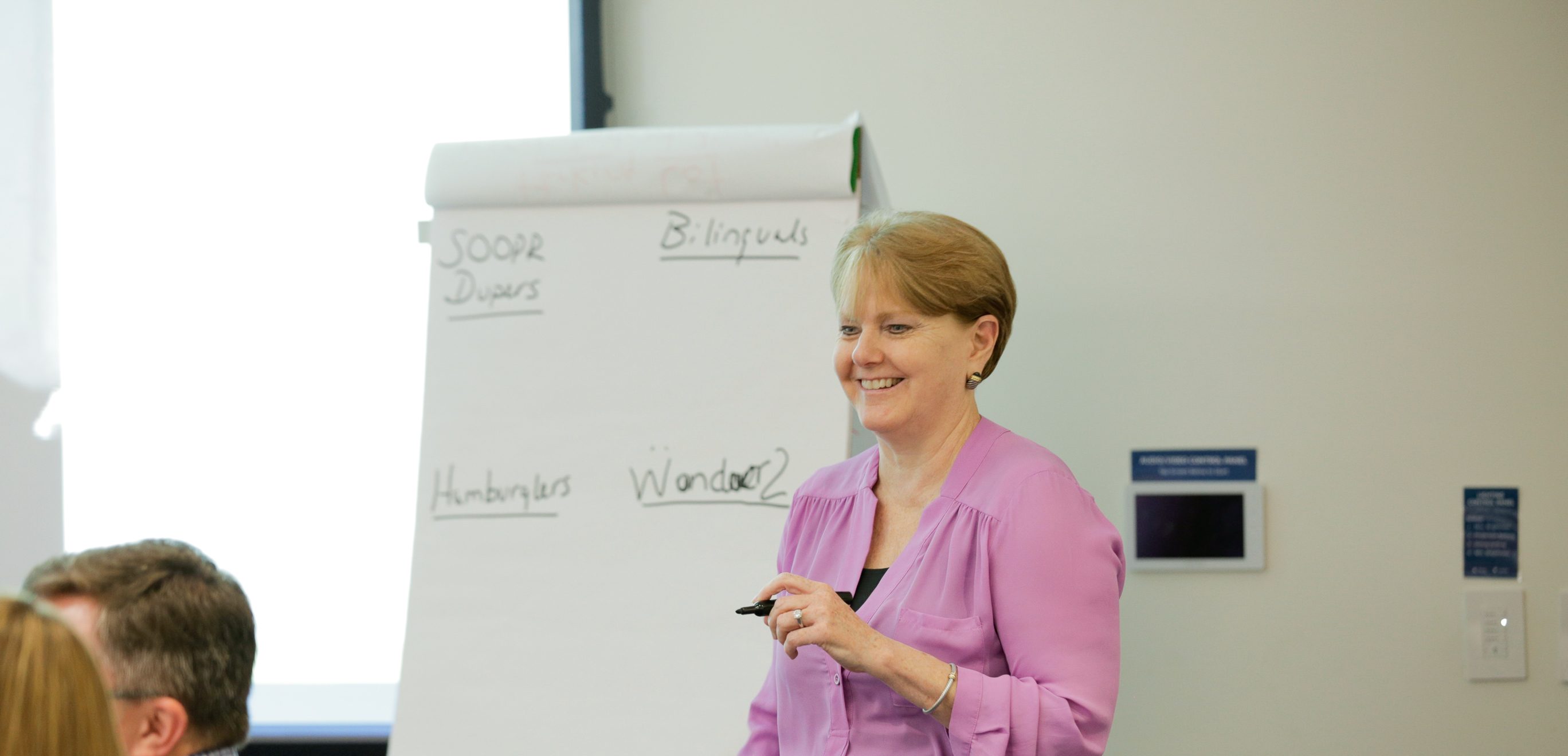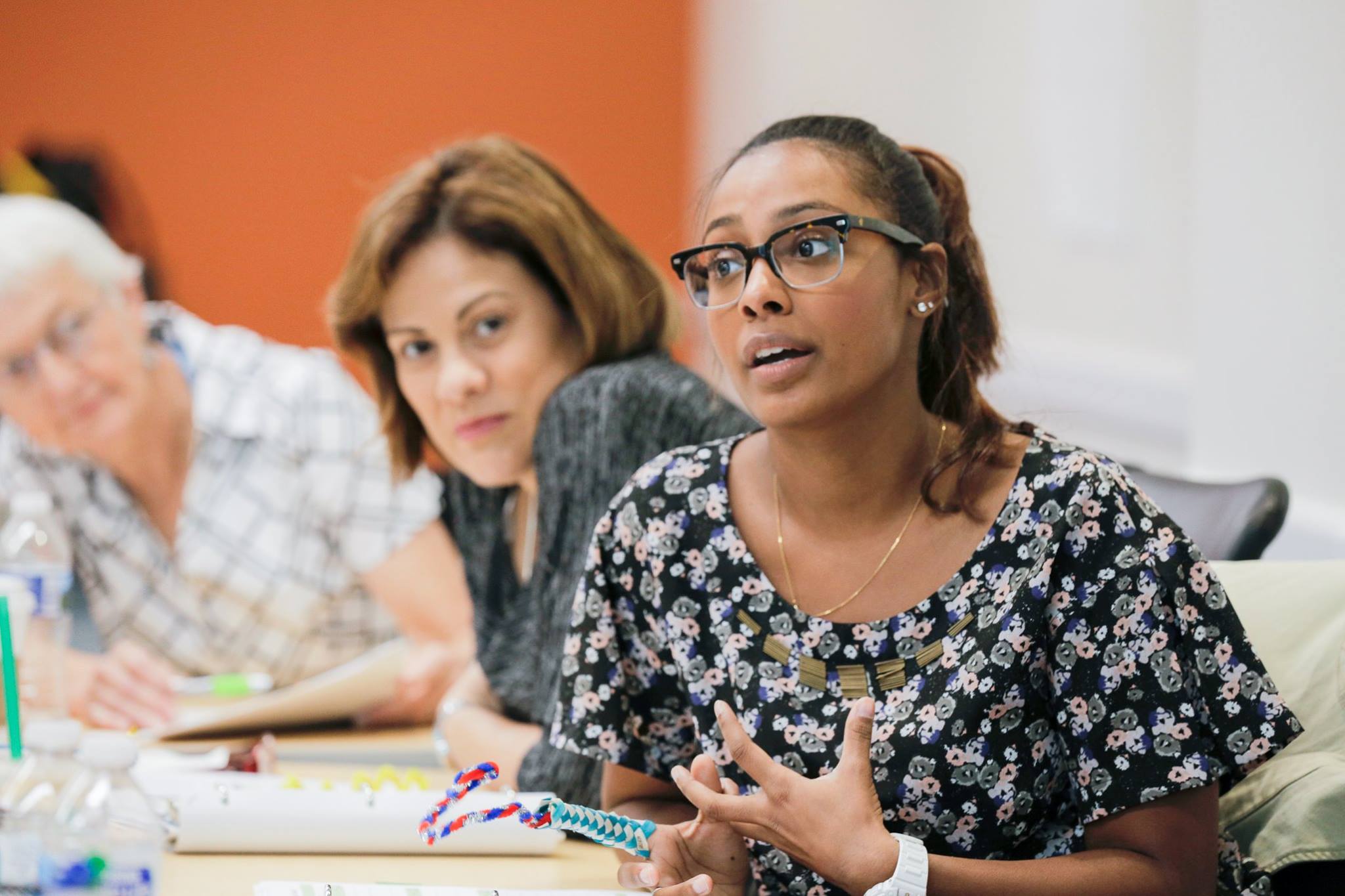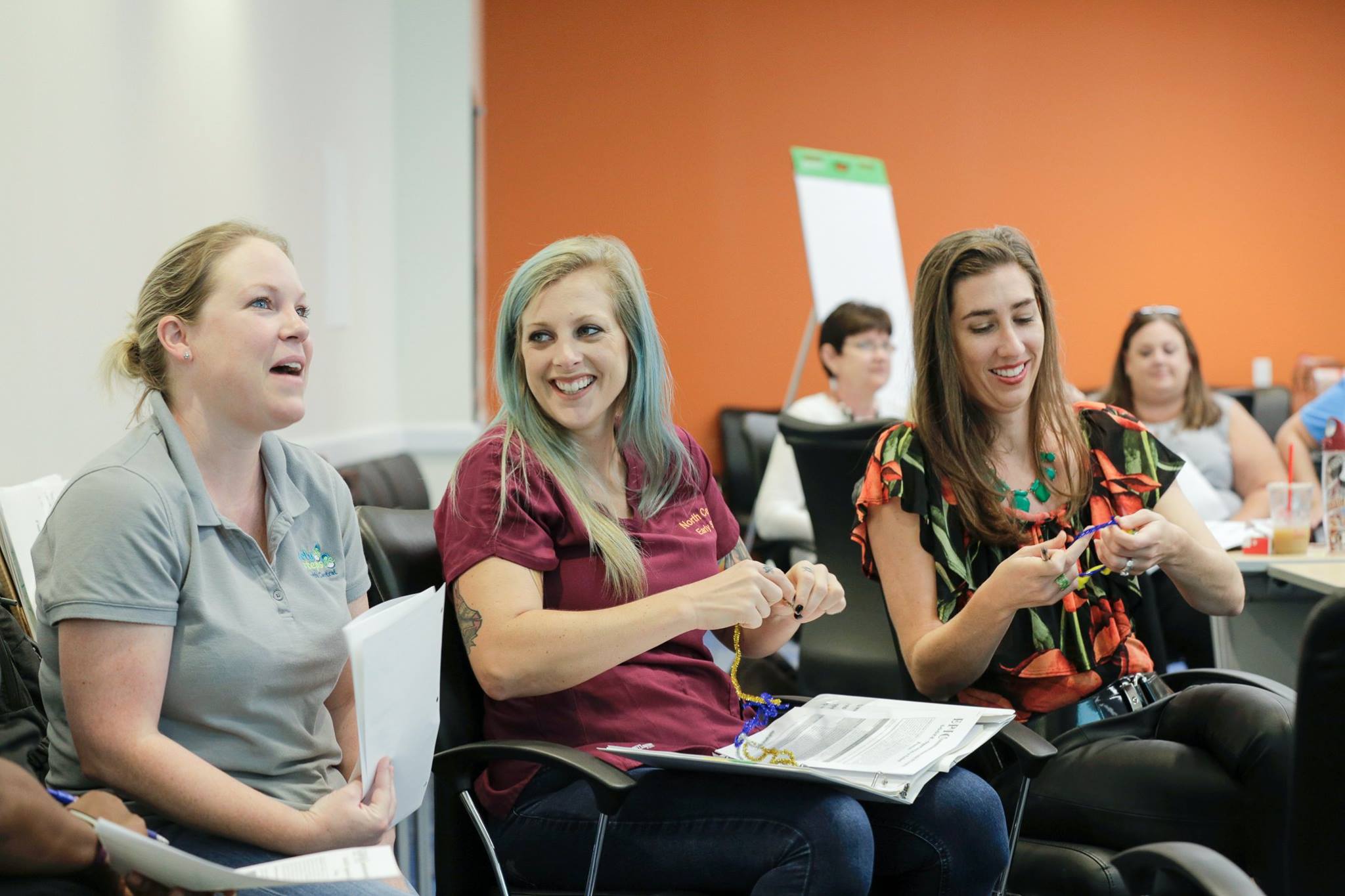Healthy social-emotional development in early childhood has lasting benefits for young children’s future development and learning, especially for young children who have or are at risk for developmental delays. Supporting families and caregivers with tools for promoting children’s early social-emotional development is crucial.
Recently, Drs. Patricia Snyder, Brian Reichow, and Cinda Clark from the Anita Zucker Center and their colleagues, Drs. Juliann Woods and Mollie Romano, from Florida State University’s Communication and Early Childhood Research and Practice Center (CEC-RAP), were awarded a contract from the Florida Early Steps program. Their work supports professional development focused on caregiver coaching on social-emotional practices at three model demonstration sites located at Northeastern Early Steps, North Central Early Steps, and North Dade Early Steps.
The contract, and its accompanying work, will involve UF and FSU working collaboratively with the Early Steps State Office and the model demonstration sites to develop, implement, and evaluate the professional development and to identify strategies for scaling it statewide in the coming years. Some of the professional development content will be adapted from the Embedded Practices and Interventions for Caregivers (EPIC) project that was conducted by FSU, UF, and the University of Illinois-Chicago with support from the Institute of Education Sciences.
The collaboration between the Anita Zucker Center and the CEC-RAP Center draws on the strengths of the two institutions and longstanding collaborations between them.

Dr. Patricia Snyder, Anita Zucker Center Director, facilitates training among practitioners.
The professional development includes workshops on a practice-based, evidence-based caregiver coaching model and and evidenced-based home visiting practices focused on supporting young children’s social-emotional competence. The professional development will involve ongoing support by the two universities to the three model demonstration programs. Specifically, lead implementation coaches at each demonstration site will be supported by the UF/FSU team and Early Steps state office personnel. The lead implementation coaches will coach service providers (such as infant/toddler developmental specialists, occupational, physical, or speech-language therapists) who work side-by-side with families in their homes. Providers coach families on how to implement the social-emotional practices with their children.
The project is collecting data on the fidelity with which providers implement caregiver coaching with families and on child and family outcomes. If successful, the model is expected to inform statewide change in professional development to support children’s social-emotional outcomes in other Early Steps service areas.

The system will also include a plan for collecting and evaluating data on implementation fidelity and child and family outcomes. If successful, the model is expected to inform statewide change in supporting children’s social-emotional and communication outcomes in other Early Steps service areas.
“This project enables us to share and apply what we have learned from our ongoing research focused on early intervention and professional development and learn alongside the model demonstration sites about what works when we scale-up practices and what needs to be modified or adapted to ensure feasibility, acceptability, and utility of the practice beyond our research studies,” Dr. Snyder said.
About Early Steps
Enhancing children’s social-emotional outcomes is a current priority of Florida’s Early Steps program, a program which provides services and supports to families of infants and toddlers with or at risk for developmental delays in over 10 geographic regions. Service providers such as infant-toddler developmental specialists, physical therapists, occupational therapists, and speech language pathologists visit families in their homes or other natural settings and share strategies they can use in daily routines and activities to support their child’s learning and development.

Practitioners pose questions during one of the first Florida Early Steps Trainings.
The teams’ supports will be used in three model demonstration sites established by the Early Steps program — North Central, Northeastern, and North Dade Early Steps. The main goal of the teams’ work will be to improve practitioners’ competence and confidence to implement evidence-based strategies with which are likely to improve outcomes for infants and toddlers enrolled in Early Steps. Dr. Snyder and her team at the Anita Zucker Center, including Drs. Brian Reichow and Cinda Clark in collaboration with their colleagues from FSU, Juliann Woods and Mollie Romano, hosted a kick-off meeting for the Early Steps Demonstration Site Professional Development Project in early March, and look forward to the project’s potential impact.
“It’s exciting that Early Steps has reached out to the Anita Zucker Center and our FSU collaborators at the Communication and Early Childhood Research and Practice Center to support their plan to improve outcomes for Florida’s infants and toddlers,” Dr. Clark said. “We’re happy that we’re able to contribute what we’ve learned from previous research and other professional development projects to this effort.”
By the end of the model demonstration project, Dr. Snyder estimates that more than 200 practitioners and 400 children and families will be impacted. Resources and lessons learned from the model demonstration projects will be shared with other Early Steps programs throughout the state of Florida as part of broader initiatives being conducted by the Florida Early Steps program.
Story by: Alexis Brown
